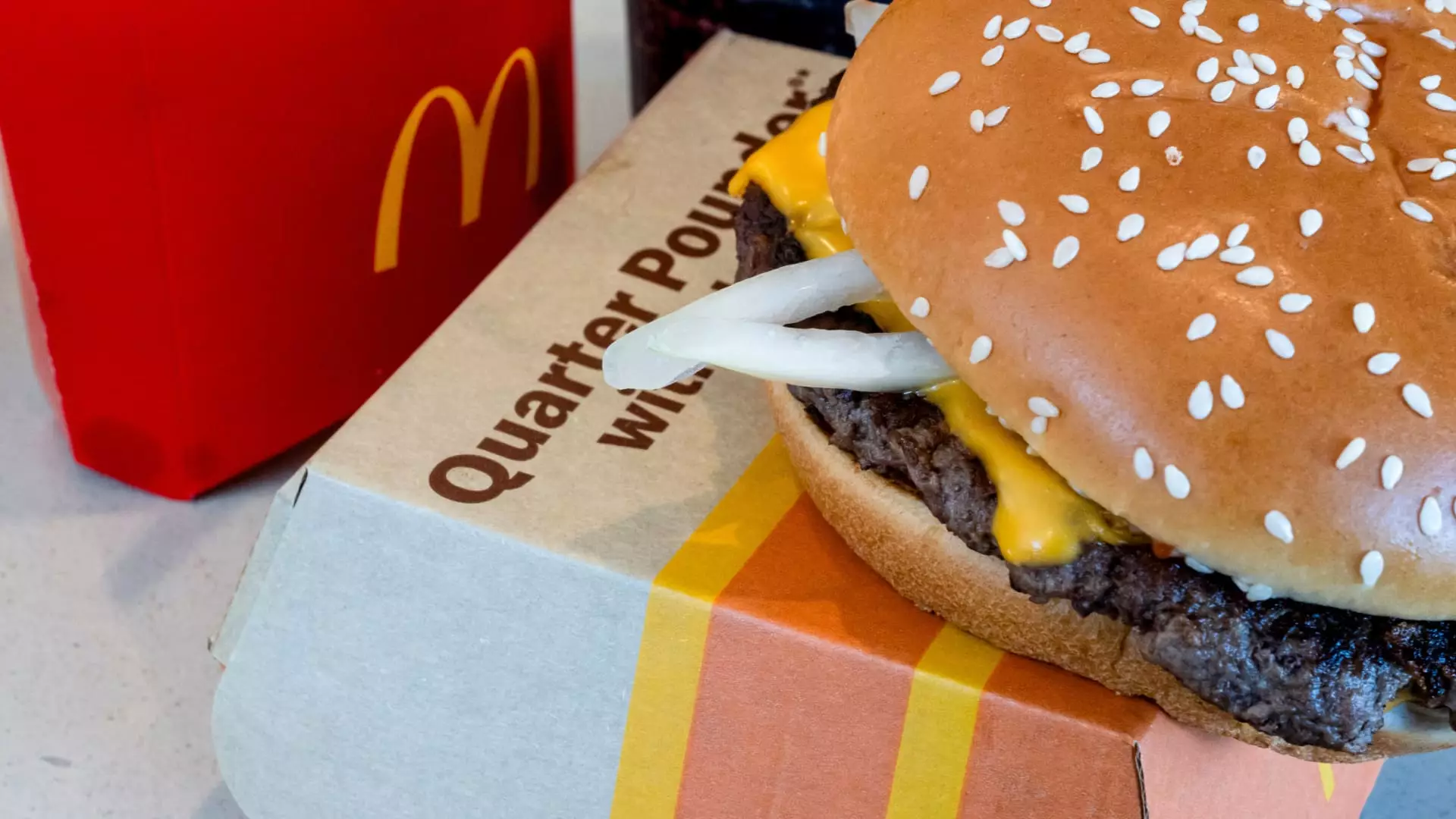The recent E. coli outbreak connected to McDonald’s Quarter Pounders has become a significant public health concern, highlighting the vulnerabilities in food safety within the fast-food industry. With 75 reported cases across 13 states, the Centers for Disease Control and Prevention (CDC) is actively engaged in tracing the origins of this contamination. As the situation unfolds, it is crucial to analyze both the human impact of this outbreak and the ramifications for a brand that is a staple of American fast food.
The Outbreak Numbers: A Deeper Look
As of Friday, the CDC revealed that the outbreak has resulted in a severe toll on public health, including 22 hospitalizations and a tragic death of an older adult in Colorado. Among the patients, a concerning trend has emerged: severe complications such as hemolytic uremic syndrome, which can lead to kidney failure, have been reported in two individuals. This syndrome is particularly alarming, as its long-term effects on health can be devastating.
According to the CDC’s data, while only 61 patients have provided detailed information, all of the 42 interviewed stated they had consumed meals from McDonald’s. Most notably, 39 participants specifically identified that they had eaten a beef hamburger. This reveals a troubling correlation that places the burden of accountability squarely on McDonald’s shoulders.
Beyond the statistics, it is important to recognize that the actual number of infections is likely underreported. the CDC estimates that many cases may go untested and undiagnosed, particularly since E. coli infections often resolve without medical intervention. Consequently, this outbreak could extend far beyond the reported figures, and other states may be impacted without an acknowledged connection.
As the situation escalates, McDonald’s has already started feeling the financial repercussions. Stocks fell by 2% following the latest updates from the CDC, and since the outbreak’s initial announcement, the stock has experienced a drop of 6%. This downturn in investor confidence is particularly problematic for McDonald’s as it navigates a period of lackluster sales in the U.S. market. With consumers increasingly price-sensitive, many fast-food chains have shifted their focus to value offerings—an area that could be jeopardized by safety concerns.
In response to the outbreak, McDonald’s has suspended the use of slivered onions across numerous locations, particularly in states where cases have been reported. The company identified Taylor Farms, a California-based produce supplier, as the source of the potentially contaminated onions. In an attempt to regain consumer trust, McDonald’s has been at the forefront of removal and containment efforts, but its core item, the Quarter Pounder, remains in jeopardy, affecting sales and customer loyalty.
Further complicating the matter, other fast-food giants, including Burger King and Taco Bell, have taken precautionary measures by pulling onions from their menus. This safety-first approach reflects a larger concern about the potential ramifications of shared suppliers and food safety protocols across the fast-food industry.
Federal agencies are shining a spotlight on McDonald’s, not just for the contamination of onions, but also for potential issues surrounding the beef patties used in the Quarter Pounder. The government’s investigation into both the onions and the beef product highlights systemic weaknesses in food safety standards. These problems raise important questions about how prepared the industry as a whole is to handle such outbreaks.
As the CDC works diligently to trace the outbreak’s origins, public sentiment remains crucial. While experts suggest that barring significant escalation, the brand damage to McDonald’s may be manageable—much like the incident with Wendy’s two years ago—the long-term implications could be profound. Frequent patrons may alter their dining choices, and the trust that consumers place in the McDonald’s brand could take years to restore fully.
The E. coli outbreak linked to McDonald’s Quarter Pounders serves as a stark reminder of the critical importance of food safety in the retail realm, particularly within the fast-food sector. As the CDC continues its investigations, both consumers and investors are left to grapple with the implications of this incident. The fast-food industry must prioritize safety and transparency to regain public trust while navigating the challenges of changing consumer behavior and expectations. Furthermore, systemic improvements must be made to prevent future outbreaks and ensure that rapid responses are in place to safeguard public health. The road ahead will require diligence, accountability, and a commitment to safety at every level of the food supply chain.

